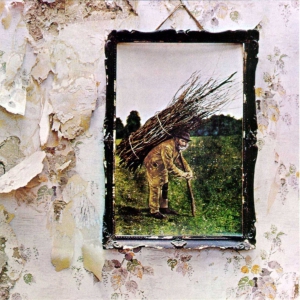
The untitled fourth studio album by the English rock band Led Zeppelin, commonly referred to as Led Zeppelin IV, was released on 8 November 1971 on Atlantic Records. Produced by guitarist Jimmy Page, it was recorded between December 1970 and March 1971 at several locations, most prominently the Victorian house Headley Grange.
After the group's 1970 album Led Zeppelin III received lukewarm reviews from critics, Page decided their fourth album would officially be untitled. This, along with the inner sleeve's design featuring four symbols that represented each band member, led to the album being referred to variously as the Four Symbols logo, Four Symbols, The Fourth Album, Untitled, Runes, The Hermit, and ZoSo (which was derived from Page's symbol). In addition to lacking a title, the original cover featured no band name, as the group wished to be anonymous and to avoid easy pigeonholing by the press.
Led Zeppelin IV was a commercial and critical success, producing many of the band's most well-known songs, including "Black Dog", "Rock and Roll", "Misty Mountain Hop", "Going to California", and the band's signature song, "Stairway to Heaven". The album is one of the best-selling albums worldwide at 37 million units, and with a 23-times platinum certification by the Recording Industry Association of America, it is the fourth-best-selling album in the United States. Writers and critics have regularly cited it on lists of rock's greatest albums.

